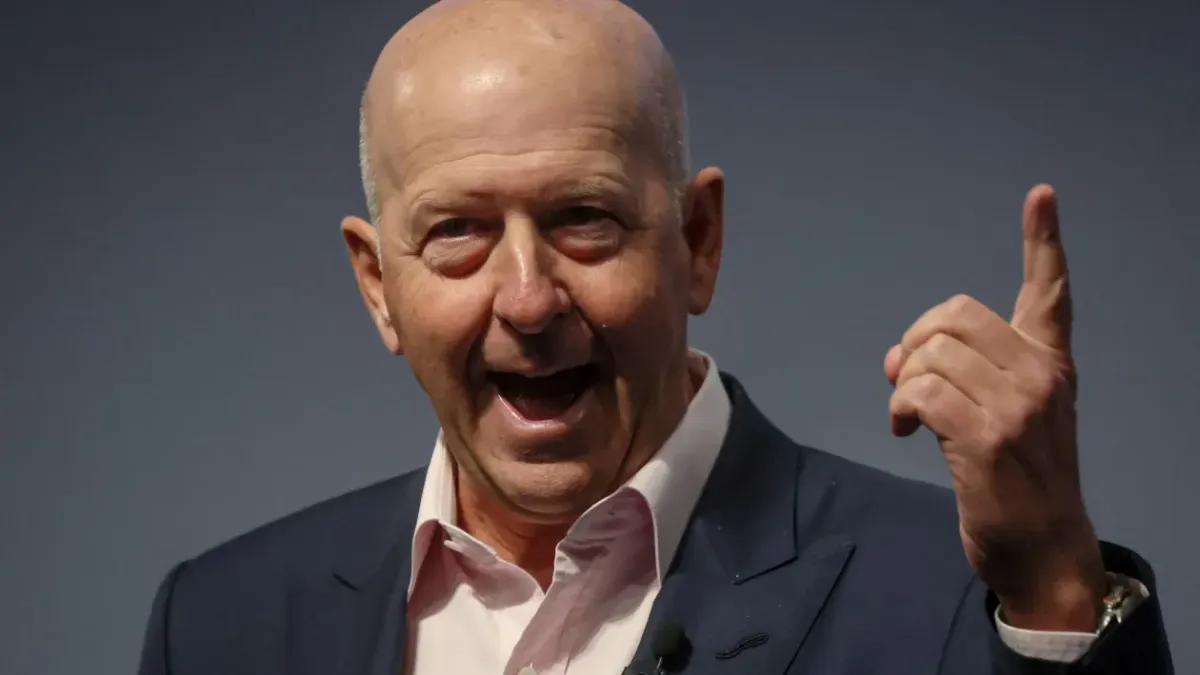Goldman Sachs Exceeds Expectations as Traders Bring in $840 Million More Revenue Than Projected

Goldman Sachs produced a blockbuster second-quarter earnings report on Wednesday, well outpacing expectations. Powered by robust performance in its trading business, the Wall Street titan posted a 22% jump in year-over-year profit, largely owing to surging equities and fixed income revenues.
The investment bank recorded a profit of \$10.91 per share, higher than the \$9.53 forecast by LSEG. Revenue was at \$14.58 billion, higher than estimates by more than \$1.1 billion.
Most of this revenue shock was credited to trading operations, which exceeded estimates by \$840 million. Equities trading was the highlight of the segment, at \$4.3 billion, a 36% increase from last year's comparable period and about \$650 million above estimates. This was driven by increased market-making activity and higher financing fees.
Fixed income trading also helped with $3.47 billion, a 9% year-over-year growth. Currency and credit market activity and increased financing fees supported the division with $190 million better than analyst expectations.
Macroeconomic Factors Boost Trading
Goldman Sachs' trading unit has profited from fresh market turmoil in 2025. President Donald Trump's re-election and his bullish tariff strategies have shaken up global financial markets, making the ground fertile for trading gains. Volatility across bonds, commodities, currencies, and equities has fueled increased volumes, rewarding companies with robust trading infrastructure—Goldman being the leader.
A times when the market is dislocated is when we usually do better," said a Goldman executive who knows the trading desk. "We've made strategic bets in talent and technology that enable us to take in more of the upside."
Broader Wall Street Rally
The robust performance at Goldman is echoing a trend at big U.S. banks. On Monday, JPMorgan Chase, Citigroup, and Wells Fargo also topped Wall Street forecasts, showing strength in the banking industry despite global uncertainties.
In spite of regulatory oversight fears, geopolitical tensions, and rate cut worries, Goldman Sachs shares have risen 23% year-to-date—a vote of confidence from investors that is very strong. Following Wednesday's earnings announcement, the stock enjoyed another boost in after-hours trading.
CEO David Solomon's Strategy Paying Off
Under CEO David Solomon, Goldman has turned increasingly to its strengths—investment banking and trading—following efforts at diversification through consumer finance that ran into turbulence in recent years.
Solomon has made the firm's strategy more centered on profitability, risk, and shareholder return improvement. Results for Q2 2025 indicate the shift is paying dividends.
Frequently Asked Questions (FAQs)
What was responsible for Goldman Sachs' stronger-than-predicted performance this quarter?
The main contributor was its trading activities, especially in equities and fixed income. The company took advantage of increased market volatility, and that led to higher trading volumes and enabled Goldman's trading desks to perform better.
To what extent did trading drive the revenue beat?
Trading contributed \$840 million more in revenue than expected by the analysts. Equities trading alone exceeded expectations by \$650 million, while fixed income exceeded expectations by \$190 million.
Why is Goldman Sachs outperforming other banks?
While most of its competitors depend more on consumer and commercial banking businesses, Goldman is more dependent on Wall Street-facing businesses, including trading and investment banking. These businesses are known to perform exceptionally well when there is market disruption or opportunity.
What effect have Trump's policies had on Goldman Sachs?
President Trump's tariff actions have generated tremendous action throughout global markets. That volatility has created trade opportunities, enabling Goldman Sachs to profit through its experienced trading infrastructure.
What lies ahead for Goldman Sachs?
If volatility in markets continues, Goldman's trading businesses should keep going strong. In the meantime, CEO David Solomon's emphasis on core competencies could set the firm up well for the rest of 2025 and beyond.
Goldman Sachs has proven once again that it can flourish amid market volatility, reminding investors why it is one of Wall Street's most powerful institutions.



